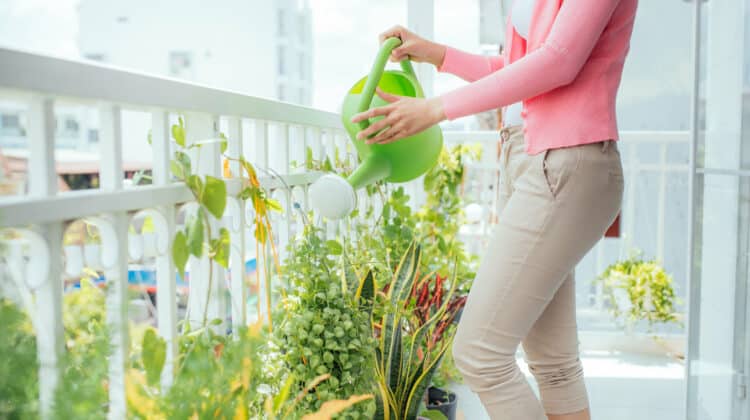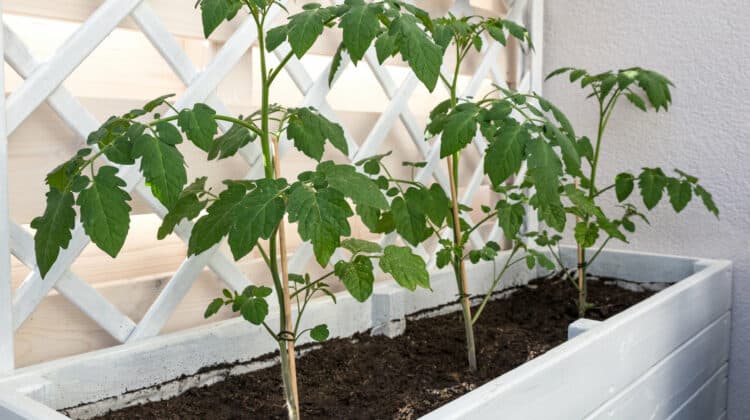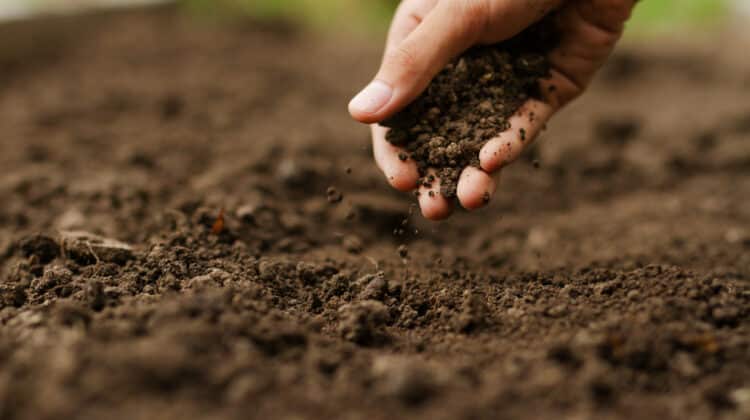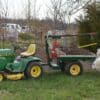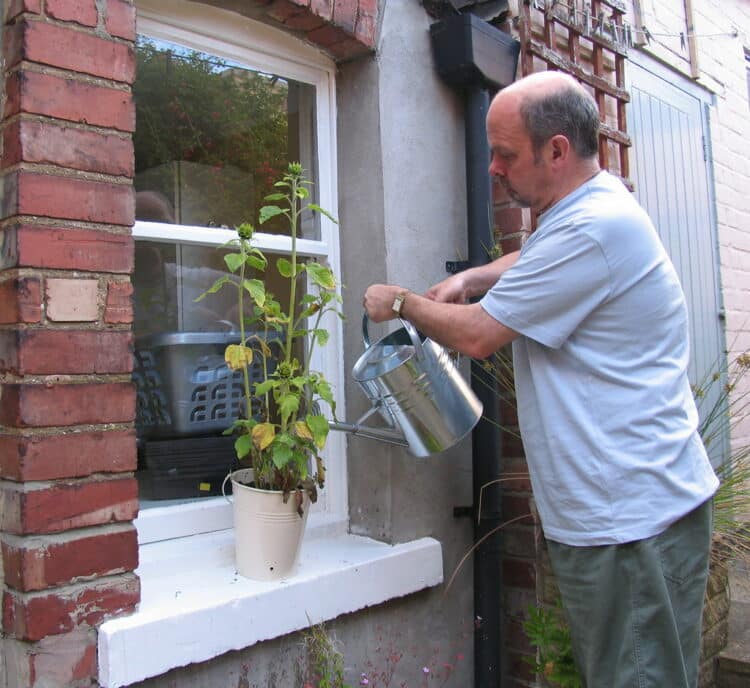
Is soft water bad for your plants? The short answer is soft water is not good for your plants.
Plants are part of us. At one point, you might need to water your plants, especially during the summer. Although, not all soft water is bad for your plant. Softened water is not good for your plants. But this is specific to ionized soft water. If you soften your water using other methods apart from ion exchange, then you have no cause to worry.
Water softened with an ion exchange method is bad for plants because it contains sodium. Sodium is harmful to plants. It can also damage the grass.
Table of Contents
Why is soft water bad for plants?
As already mentioned, soft water contains sodium. When you water plants with soft water, the plants start drying and end up dying. Salt tricks them into thinking they have absorbed water. In the real sense, they only absorb very little water. If you continue watering them with soft water, they starve to death. So your plants won’t die from any chemical reaction but may die from dehydration.
Continued use of soft water can also cause soil degradation. The soil becomes hostile to the plants and grass. The reason being that it prevents plants from absorbing water from the soil. Most plants will die when sodium composition in the soil exceeds 70mg per liter of water. To put this into context, soft water contains roughly about 20-30 mg per liter. Of course, you will notice that 30mg is less than what can kill a plant. But if you water your plants more than twice, it is enough to saturate your soil with toxic soil.
What about hard water? Can it be bad for the plants?
Now that we have seen that soft water is bad for plants and grass, it is time to ask the next question. Is hard water bad for the plants as well? Generally speaking, hard water may be good for your plants. Hard water contains calcium and magnesium which are good for the plants. But, when these elements exceed certain limits, the water becomes bad for the plants. Too much calcium and magnesium can damage the soil. If you are not sure whether your water is good for your plants, you can get in touch with a water testing lab. They will assist you to determine the level of hardness of your water.
How can I avoid using softened water on plants?
This is easy. You don’t have to use soft water to water your plants. Use the hard water to water the plants before it goes through the softening process. Get a spigot and install it on the main water pipe. This way, you can water the plants straightaway before you soften your water.
The other option is to use a bypass valve that you attach to the main water supply. This separates the hard and soft water. If that option is not ideal for you, consider having a separate line for your garden.
Some people may opt to mix soft water with rainwater or distilled water. This is a temporary solution because sodium is still present in the water. Diluting it only prolongs the time the plant will take before dying.
How can I reverse the damage caused by soft water on my plants?
If you have been watering your plants with soft water without knowing the harm you are causing, try this tip. Stop it immediately. If the damage was not extensive, the plants will regain their health in a couple of weeks. Take further action if you don’t see any improvements. The easiest way to do this is to take hard water or rainwater and flush out the sodium deposits in the soil. Keep watering the plants with sodium-free water until it reaches the roots of the plants. This way, the sodium deposits will get flushed out and the plant will regain its health.
Make sure the plants that are in containers have enough drainage. Drill drainage holes at the bottom to ensure that the excess salt drains out of the container. The only problem with this method is that the flushing will lead to a loss of nutrients (leaching). But you can replace the lost nutrients through applications of composite manure.
What are other watering alternatives to soft water?
If all you have at home is soft water, you might find it difficult to water your plants. There are other alternatives you can explore apart from using hard water.
The first alternative is rainwater. Rainwater is the purest soft water available. It is the healthiest and safest source of plant water. The only problem with rainwater is that it is an unreliable source of water. To solve this problem, invest in a rainwater harvesting system. This will help you to harvest and store rainwater every time it rains. You can store rainwater only for watering plants so that it can last longer. Ensure that the water stored is clean and safe for use in plants. Contaminated rainwater can be as bad as saltwater.
If you are fortunate to have a tap water supply that doesn’t contain sodium, you can use it to water plants. But be careful because almost all city tap water contains chlorine. Chlorine is harmful to plants. If you must use tap water, ensure that it rests in a water barrel overnight so that the chemicals can settle.
You can also use distilled water to water your plants. It is like rainwater because it does not contain chemicals and sodium. The problem with distilled water is that it can be costly if you are watering many plants. Distilled water does not contain essential plant minerals. So you will need to add these nutrients and minerals to the water before watering the plants. To reduce the costs, you can buy a water distillation system. This will reduce the costs.
Not all soft water contains sodium. It all depends on the softening process used. If you soften your water using reverse osmosis, it will not contain sodium. Reverse osmosis is the process of softening water without ionizing. It involves passing hard water through a semipermeable membrane under pressure. This gets rid of biological impurities and unwanted chemicals from the hard waters. So you end up having water that contains no minerals, salt, chlorine, bacteria, and fluoride.
If you decide to get a reverse osmosis softening system, prepare to replace your pipes often. Reason being that the hard water will still be running through the pipes. This system may also not be able to process enough water to cater to your household and watering plants. It can work if you have only a few plants to water.
How can I cure salty soil?
There is a possibility that you have used so much softened water on your garden that the soil is now very salty. Many people experience this and witness their plants dying without knowing the reason. So they end adding composite and water, but this doesn’t solve the problem. Now that you know the cause of the problem, you are wondering whether you can restore your soil. Unfortunately, there is no straight remedy for this problem. That means there is no garden product or application you can apply to the garden to remove sodium.
The only proven way to amend the soil is to ensure there is good drainage. This allows salts to flush away through leaching. This process involves washing away the salt using soft water that does not contain salt. Some people have claimed that there are chemicals that can treat soil salinity. But that is not a good substitute. This can even make things worse. So you are only left with one safe method–leaching. After leaching, you will have to add nutrients lost back to the soil. Apply composite and other soil amendment products to restore the quality of the soil.
If you are trying to amend clay soil in an area with poor drainage, you will have to create good drainage. Create a slope to make it possible for water to flow down. If your garden is already sloppy but the soil is not draining, you can add organic matter. Adding organic matter to the soil will improve drainage as well as make the soil rich in nutrients. It is also critical to install a perforated pipe. Install the pipe in a trench running parallel to the slope. The purpose of the perforated pipe is to drain the salty water away.
Avoid clogging of the perforated pipe, add some gravel to the trench where the pipe is running. The gravel should be about 2cm (3/4inch) in size. The work of the gravel is to work as bedding for the pipe so that debris from the soil doesn’t get into the pipe and block it. Cover the trench with the soil that you took out to make the trench. Direct the drainage pipe to an open field or septic tank. Avoid directing to neighbors as this can bring problems with the neighbors.
Can I use chemicals to treat soil that is water by soft water?
If leaching sounds like too much work, there is a chemical remedy you can try. Try adding calcium to the soil in a soluble form. A good example is gypsum stone. Consult experts to determine the correct amount of calcium to add to the salty soil. You can buy the gypsum from garden stores or agricultural supply stores.
Once you have added calcium, run plenty of water through the soil. It speeds the process of lowering the salinity of your garden. Some areas are rich in limestone, which contains a lot of calcium. But, the problem with limestone is that it doesn’t dissolve in soil, especially if the garden is high in PH.
A few more tips on how to maintain your garden
Gardening is fun. Do not allow saltwater to ruin your garden. Before watering the plants, ensure that the quality of water is good. Apart from the quality of water, there are other tips you can consider:
Watering your plants in the morning hours – make a habit of watering your plants during the morning hours. Watering in the morning hours ensures that the moistened soil will dry out during the day. Watering in the evening can attract fungal and bacterial diseases. It may happen because plants stay damp during the night. That is the time they will attract fungal and bacterial diseases.
Watering the plants with lukewarm water – Plants don’t like cold water. After watering your plants, refill the watering can and allow the water to sit. Doing this ensures that the water is at the right temperature when you decide to water again.
Avoid overwatering – too much of anything is not good. Overwatering is bad for your plants. Check the soil using your finger to ensure the garden is not damp. Do not overwater. Plants can attract wilt and look limp when there is too much moisture in the soil. The leaves will also begin to look yellow. When there is little water, plants will wither and appear brittle.
Knowing your plants – knowing the type of plants you have is crucial. Different plants grow differently depending on the season. Some plants are vibrant during winter, while others are active during summer. Some other plants may tolerate small amounts of saline water, but others cannot. If you are not sure about what your plant can tolerate, do more research. You can also get in touch with your local agricultural officer.
Conclusion
Like humans, some elements in water can be harmful to plants. You ought to water your plants using the correct type of water. Soft water contains sodium, and this can kill your plants and grass. To prevent this, use the alternatives we have discussed above. Doing so will ensure that your plants remain healthy and greener.
